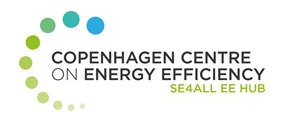The Copenhagen Centre for Energy Efficiency (C2E2), which was founded in October 2013 and serves as the Sustainable Energy for All (SE4ALL) Energy Efficiency Hub, has highlighted the key accomplishments of its first year, including providing technical and analytical support to sector- or technology-oriented energy efficiency accelerators and forging partnerships with a range of organizations to exploit energy efficiency's full potential.
 20 November 2014: The Copenhagen Centre for Energy Efficiency (C2E2), which was founded in October 2013 and serves as the Sustainable Energy for All (SE4ALL) Energy Efficiency Hub, has highlighted the key accomplishments of its first year, including providing technical and analytical support to sector- or technology-oriented energy efficiency accelerators and forging partnerships with a range of organizations to exploit energy efficiency’s full potential.
20 November 2014: The Copenhagen Centre for Energy Efficiency (C2E2), which was founded in October 2013 and serves as the Sustainable Energy for All (SE4ALL) Energy Efficiency Hub, has highlighted the key accomplishments of its first year, including providing technical and analytical support to sector- or technology-oriented energy efficiency accelerators and forging partnerships with a range of organizations to exploit energy efficiency’s full potential.
A number of regional partnerships, which conduct analysis, promote energy efficiency policies and break down barriers to deploying energy efficiency measures, involved such organizations as Fundación Bariloche in Argentina, Asian Institute of Technology in Thailand, Centre for Energy Efficiency (CENEf) in Russia and the Energy Research Centre (ERC) at the University of Cape Town (UCT) in South Africa.
On a global scale, C2E2 has been advising and reviewing indicators for the World Bank on its Readiness for Investment in Sustainable Energy (RISE) programme, and working with SE4ALL’s Global Tracking Framework. It has also fostered partnerships with the International Energy Agency (IEA), UN Regional Commissions, EU and the Energy Charter Secretariat, among others.
On publications, C2E2 reports it is contributing to an International Renewable Energy Agency (IRENA) analytical paper on two of the SE4ALL objectives (doubling the share of renewable energy in the global energy mix and doubling the global rate of energy efficiency improvement by 2030). It also contributed to the UN Environment Programme’s (UNEP) Emissions Gap Report and the Renewable Energy Policy Network for the 21st Century (REN21) Global Status Report.
Looking ahead, C2E2 notes that it could be expanded to host the Secretariat of the Global Energy Efficiency Accelerator Platform, based on its work supporting accelerators for Buildings; Appliances and Equipment; District Energy Systems; Lighting; and Vehicle Fuel Efficiency, and developing new accelerator concepts for the Power Sector and Industry. [C2E2 Press Release] [IISD RS Story on UNEP’s Emissions Gap Report] [IISD RS Story on RE21’s Global Status Report]